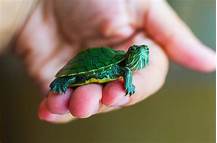Can a Squirrel Be a Pet?
Squirrels are fascinating creatures that have captured the hearts of many people with their playful antics and bushy tails. While they may seem like charming candidates for a pet, there are important factors to consider before bringing a squirrel into your home.

Squirrel as Pets
1. Wild by Nature:
Squirrels are wild animals and should not be domesticated. They can be unpredictable and may exhibit aggressive behavior if they feel threatened. Attempting to tame a squirrel can potentially cause stress and fear in the animal, negatively impacting its well-being.
2. Specialized Diet:
Squirrels have specialized dietary needs. Their diet consists of a variety of nuts, seeds, fruits, and insects. Providing a balanced diet for a pet squirrel can be challenging as they may reject certain foods and require a variety of options. Improper diet can lead to health problems.
3. Active and Curious:
Squirrels are highly active and curious animals. They require ample space to explore, climb, and engage in their natural behaviors. Keeping a squirrel confined to a small cage can restrict its mobility and lead to physical and mental health issues.
Legal and Ethical Considerations
1. Legal Restrictions:
In many regions, it is illegal to possess a squirrel as a pet. Local laws may prohibit the keeping of wild animals as pets due to conservation concerns and the potential for spreading diseases. It is essential to research local regulations before considering a squirrel as a pet.
2. Ethical Concerns:
Keeping a squirrel as a pet raises ethical concerns. These animals are meant to roam freely in their natural habitats, foraging for food and interacting with their own kind. Confining them to a domestic environment can deprive them of their natural instincts and social interactions, potentially causing psychological distress.
Alternatives to Pet Squirrels
1. Wildlife Observation:
If you admire squirrels, consider observing them in their natural environment. Squirrel-watching can be a rewarding hobby that allows you to appreciate their behaviors and habits without interfering with their freedom.
2. Wildlife Rehabilitation:
If you encounter an injured or orphaned squirrel, you can assist wildlife rehabilitation centers in caring for these animals until they can be released back into the wild. This is a way to positively contribute to wildlife conservation.
3. Squirrel-Friendly Gardens:
Creating a squirrel-friendly garden can attract these charming creatures to your backyard. Provide them with a variety of nuts, seeds, and fruits, as well as a safe space to nest. This allows you to enjoy the presence of squirrels without keeping them as pets.
In conclusion, while squirrels may seem like entertaining companions, they are not suitable as pets due to their wild nature, specialized dietary needs, and ethical concerns. Instead, appreciate these animals from a distance, support wildlife conservation efforts, and create habitats that welcome squirrels to thrive in their natural environments.
Declaration: All article resources on this website, unless otherwise specified or labeled, are collected from online resources. If the content on this website infringes on the legitimate rights and interests of the original author, you can contact this website to delete it.





